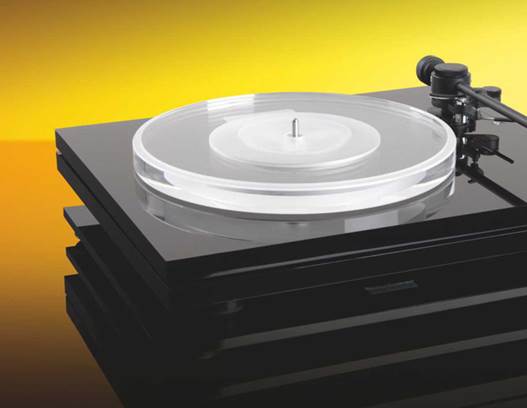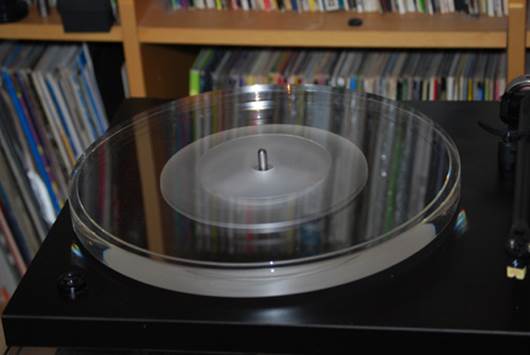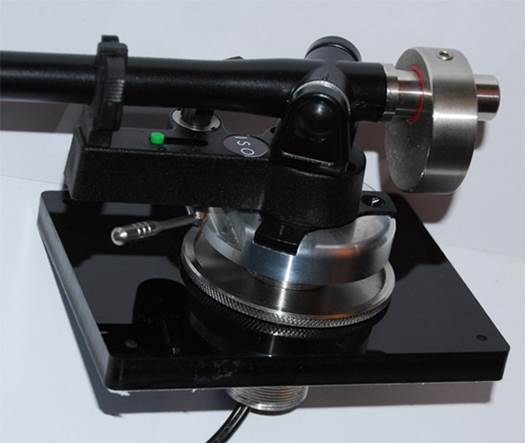ISOkinetik has recently launched a
new turntable – the Modular 1.5. We are the lucky one taking it for a spin...
ISOkinetik is a name that has been around
for a few years. The company first earned an excellent reputation for its
enhancements and upgrades to existing audio products, in particular record
decks. Its design philosophy is simple: “If it sounds better, it is better!”
Later, it went on to produce its own turntable, the Modular One. Now it has
added a second turntable to its range – the Modular 1.5, which is also
available as an upgrade to the Modular One.
The Modular 1.5 is designed to be fully
customizable and upgradable so that it can be built according to the user’s
budget and personal taste. It can be purchased with a full range of
enhancements and upgrades fitted, or it can be supplied as an entry-level unit,
which can then be upgraded in stages, as funds permit. The Modular 1.5 can be
supplied on its own or complete with a Jelco or an OEM Rega arm. The end
result, it is claimed, will compete favorably with more expensive competitors.

ISOkinetik
Modular 1.5 Turntable
The black plinth looks superb and is CNC
machined from highly polished 20mm thick billet acrylic. This plinth is
essentially the Modular One turntable and it is upgraded to the Modular 1.5 by
adding the M1.5 sub-plinth, which is also made from 20mm-thick acrylic, and
supported by four dense absorb thane anti-vibration pads. The feet are machined
from Delrin and also have absorbed thane anti-vibration pads built into them.
Absorb thane is great at absorbing vibrations and has superb anti-slip
properties. In fact, it feels quite sticky to the touch (even though it isn’t)
and tends to adhere firmly to any smooth surface, making the unit rather
difficult to move.

The
Modular One turntable
Spinning around
The turntable bearing assembly is made from
phosphor-bronze and incorporates a ceramic ball. It is fitted to an aluminum
and ground-steel sub-platter, which is engineered to exacting tolerances with
0.001mm concentricity between axle and hub.
A high-quality asynchronous motor spins the
platter at either 33rpm or 45rpm. Like many other turntables in its class, this
speed change is accomplished by moving the drive belt on the pulley. However,
better results are achieved by using the ISOdrive quadrature-quartz speed an
upgrade to bring greater pitch stability and speed accuracy, as well as a push
button speed change facility.

This
allows the user to fit almost any tone arm to the turntable
One of the particular features of the
design that I find especially useful when reviewing audio equipment is the
tonearm transfer plate. This is a removable rectangular plate that’s just 10mm
thick and fitted neatly into the plinth and secured by four Allen bolts. This
allows the user to fit almost any tonearm to the turntable. It also facilitates
the comparison of various combinations of tonearm and cartridge which, once
mounted on a transfer plate, are simply dropped into place. Changing a tonearm
that has a completely different mounting arrangement simply involves obtaining
an additional tone arm plate from ISOkinetik (which can be pre-drilled as
required), meaning that no additional modification to your precious turntable
is necessary.
The basic model is supplied with a 12mm
diamond polished acrylic platter, which is said to have a neutral character.
Upgrades include a 25mm-thick acrylic platter, or platters made from Delrin or
ply materials, together with a number of color options.
The model reviewed here has all the
upgrades fitted, including the ISOdek S1 clear acrylic isolation platform, the
ISOsub GT2 S sub-platter, the 25mm clear acrylic platter and the ISOdrive off-board
turntable power supply. The ceramic ball in the bearing assembly has also been
upgraded with the ISObear Ruby Sapphire bearing ball. For the purposes of the
review, I fitted my own Kiseki Blue NOS moving coil cartridge into the arm.
Incidentally, the ISOdrive is an external
power supply that takes your noisy 240V AC mains, converts it to a 24V DC, uses
this to power a quartz oscillator to produce switchable 50Hz or 67.5Hz and then
steps the result up to 115V AC to run the synchronous motor. The drive belt can
then be left on the upper 33rpm pulley as depressing the button on the front of
the ISOdrive changes the indicator LED from red to green and increases the
oscillator frequency from 50Hz to 67.5Hz, thus increasing the turntable
rotation to 45rpm. As with all the other upgrades, the ISOdrive can be fitted
later to the base model turntable by swapping a little printed circuit board
without having to change the motor.
As previously mentioned, the turntable is
beautifully finished and it is very apparent that everything has been
manufactured to an extremely high standard. The style is simple and
uncomplicated and looks very modern and elegant with just the right use of
black and transparent acrylic with splashes of silver aluminum around the motor
pulley assembly. The turntable is no lightweight, weighing in at around 10.5kg,
which rises to 13.5Kg when you add the ISOdek isolation platform.